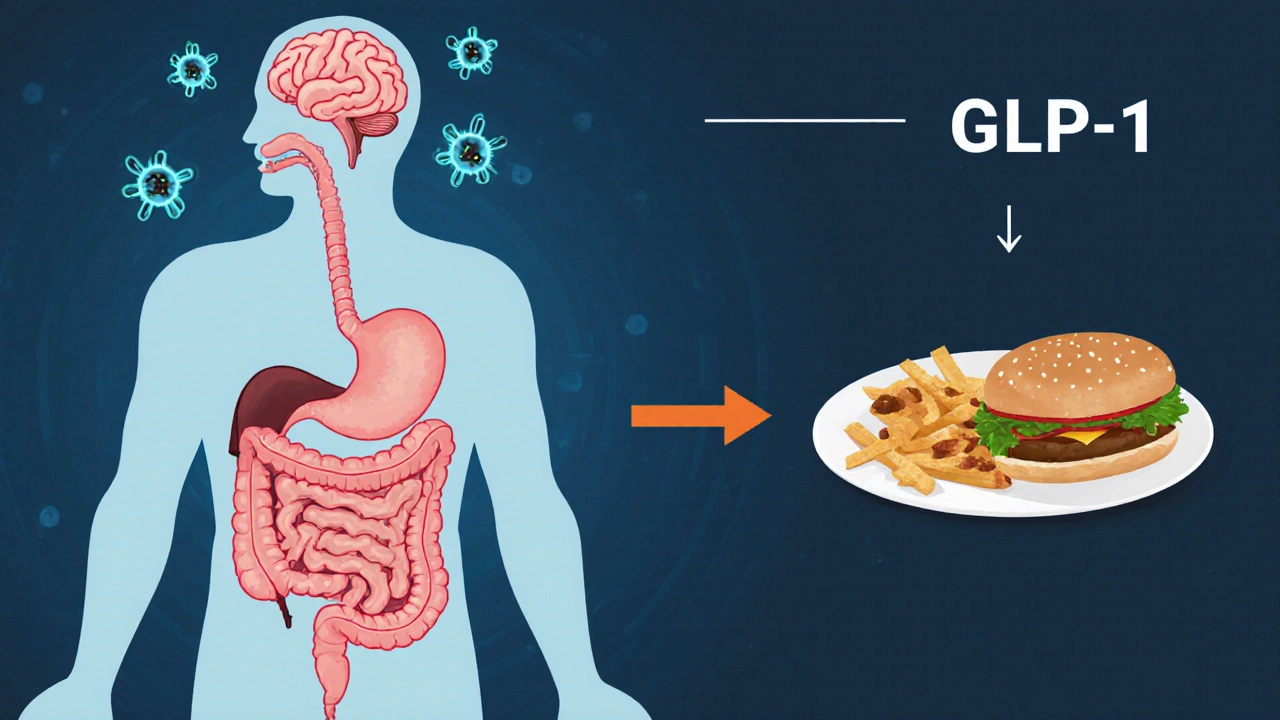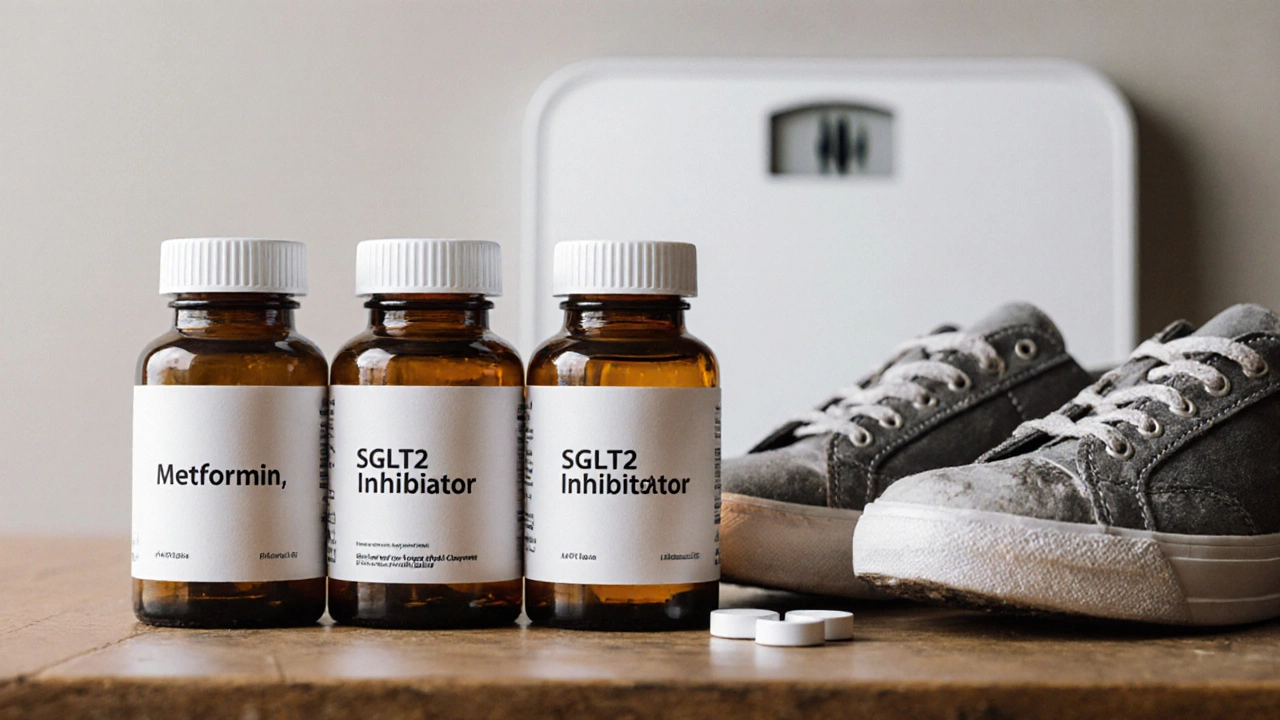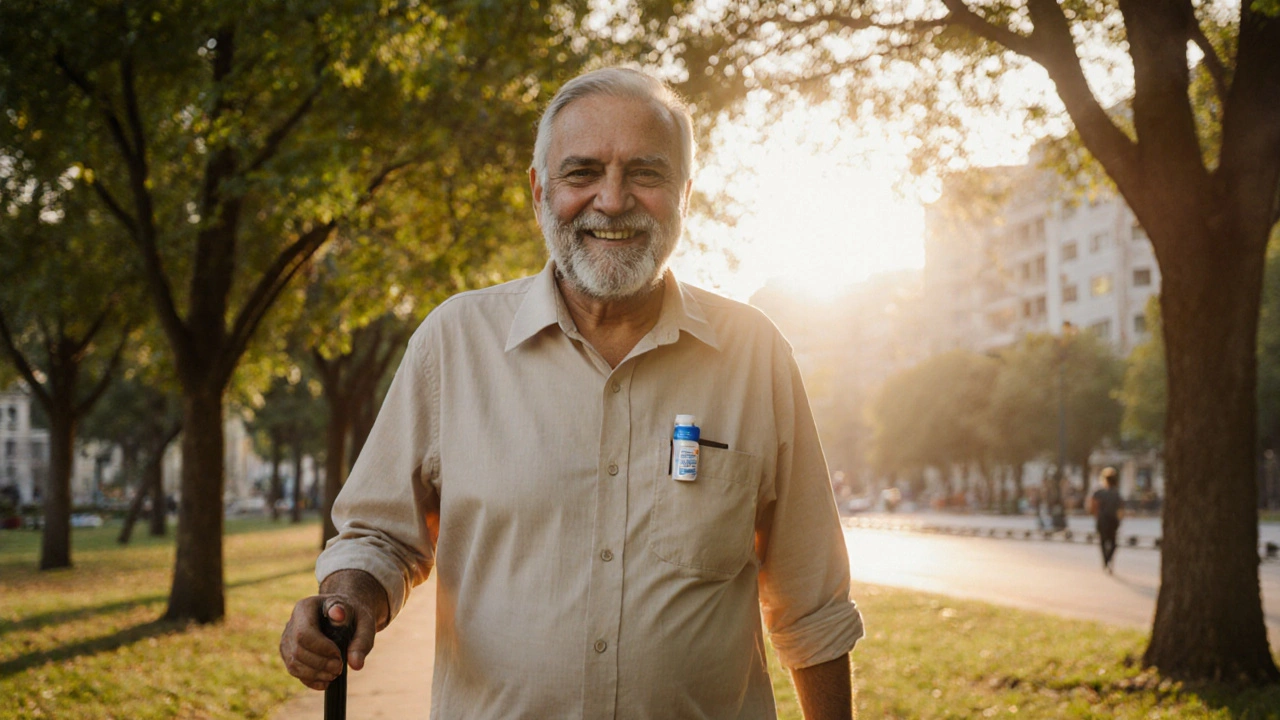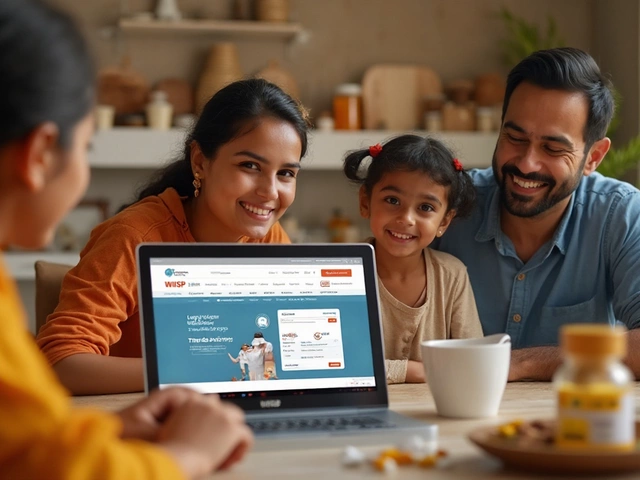Diabetes Weight Loss Calculator
How much weight can you lose with diabetes medications?
Find out your potential weight loss and health benefits based on your starting weight and medication choice.
Your Expected Results
Health Benefits
What to expect
People with type 2 diabetes often struggle with weight. It’s not just about appearance-it’s about health. Extra weight makes insulin less effective, raises blood pressure, and increases the risk of heart disease. But here’s the good news: some diabetes medications don’t just control blood sugar-they actually help you lose weight. And not a little. Some people lose 10%, 15%, even 20% of their body weight on these drugs.
Why weight loss matters in type 2 diabetes
When you carry extra weight, especially around your belly, your body’s cells become resistant to insulin. That means your pancreas has to work harder to make more insulin, and eventually, it burns out. That’s how type 2 diabetes develops. Losing even 5% of your body weight can improve insulin sensitivity, lower blood sugar, and reduce the need for other medications. Some people reverse their diabetes entirely with weight loss.
But losing weight on your own is hard. Dieting feels like a constant battle. Exercise is tough when you’re tired or in pain. That’s where certain diabetes medications come in-not as magic pills, but as tools that make weight loss easier by working with your body’s natural hunger signals.
GLP-1 receptor agonists: The weight-loss champions
The most effective diabetes drugs for weight loss belong to a class called GLP-1 receptor agonists. These mimic a hormone your gut makes after eating. That hormone tells your brain, “You’re full,” slows down digestion, and reduces cravings. The result? You eat less, feel satisfied longer, and lose weight-without constant hunger.
Here are the top three GLP-1 agonists used for diabetes that also cause significant weight loss:
- Semaglutide (brand names: Ozempic, Wegovy): This is the strongest in the class. In clinical trials, people with type 2 diabetes lost an average of 12-15% of their body weight over 68 weeks. Some lost over 20%. It’s given as a once-weekly injection.
- Liraglutide (brand names: Victoza, Saxenda): Approved for both diabetes and weight loss. People typically lose 5-10% of their body weight. It’s a daily injection.
- Dulaglutide (brand name: Trulicity): Slightly less weight loss than semaglutide, but still effective-around 4-6% on average. Also once-weekly.
These drugs aren’t just about shrinking your waistline. They also lower your risk of heart attacks and strokes, which is huge for people with diabetes. In fact, the FDA approved semaglutide for heart protection in people with type 2 diabetes and existing heart disease.
How these drugs actually make you lose weight
It’s not about speeding up your metabolism. It’s about changing how your brain and stomach work together.
When you eat, your gut releases GLP-1. This hormone travels to your brain and tells you to stop eating. It also slows how fast food leaves your stomach. That’s why you feel full longer. People on these drugs often say they don’t crave snacks. They don’t feel the urge to eat when they’re not hungry.
One study tracked people on semaglutide for a year. They didn’t change their diet or exercise much. Yet they still lost weight. Why? Because their appetite dropped. They ate smaller portions naturally. No willpower needed.
This is why these drugs are so powerful. They don’t rely on you being perfect. They change the biology behind overeating.

Other diabetes drugs that help with weight loss
Not all diabetes meds cause weight gain. Some are neutral or even help you lose a little.
- Metformin: The oldest and most common diabetes drug. It doesn’t cause weight gain and often leads to a modest loss-around 2-5% of body weight. It’s usually the first pill doctors prescribe. It works by making your liver produce less sugar and improving how your body uses insulin.
- SGLT2 inhibitors (like empagliflozin, dapagliflozin, canagliflozin): These make your kidneys flush out sugar through urine. That burns extra calories-about 200-300 per day. People lose 4-6% of their body weight on average. They also lower blood pressure and protect the kidneys and heart.
But here’s the catch: SGLT2 inhibitors can cause dehydration, yeast infections, and, rarely, a dangerous condition called diabetic ketoacidosis. You need to drink plenty of water and watch for signs like nausea, confusion, or fruity-smelling breath.
Medications that cause weight gain-avoid if weight loss is your goal
Some diabetes drugs make weight loss harder. If you’re trying to shed pounds, you’ll want to avoid these:
- Insulin: It helps your body store sugar as fat. Many people gain weight when they start insulin, especially if they’re not careful with food.
- Sulfonylureas (like glimepiride, glyburide): These force your pancreas to make more insulin. That can cause low blood sugar, which leads to snacking-and weight gain.
- Thiazolidinediones (like pioglitazone): These make your body store fat, especially around the hips and thighs.
If you’re on one of these and struggling with weight, talk to your doctor. Switching to a different drug might help.
Real results: What to expect
Weight loss isn’t the same for everyone. It depends on your starting weight, how long you’ve had diabetes, your diet, and your activity level.
Here’s what most people see:
- First 4-8 weeks: You feel less hungry. Your cravings drop. You might lose 2-5 pounds.
- By 3 months: Most people lose 5-10% of their body weight. Blood sugar improves noticeably.
- By 6-12 months: Weight loss plateaus. Many people stabilize at 10-15% loss. Some continue to lose slowly if they stay consistent.
One patient I worked with in Bangalore, a 58-year-old man with type 2 diabetes and a BMI of 36, started semaglutide. In six months, he lost 18 kg. His A1C dropped from 8.9% to 6.1%. He stopped taking metformin. His knees stopped hurting. He started walking daily. That’s the kind of change these drugs can make.

Side effects and what to watch for
These drugs aren’t risk-free. The most common side effects are nausea, vomiting, diarrhea, and constipation. These usually fade after a few weeks as your body adjusts.
Less common but serious risks include:
- Pancreatitis (inflammation of the pancreas)
- Gallbladder disease
- Increased risk of thyroid tumors (seen in animal studies-no proven link in humans)
If you have a personal or family history of medullary thyroid cancer or multiple endocrine neoplasia syndrome, you should not take these drugs.
Always start at the lowest dose and increase slowly. That reduces side effects.
Cost and access in India
These drugs are expensive. Semaglutide (Ozempic) can cost ₹15,000-₹20,000 per month in India. That’s out of reach for many. But some pharmacies offer generic versions or patient assistance programs. Liraglutide and metformin are much cheaper and widely available.
Insurance rarely covers them for weight loss alone. But if you have type 2 diabetes and your doctor documents your health risks, you might get partial coverage.
Generic semaglutide is expected to arrive in India by late 2026. Until then, talk to your doctor about alternatives like metformin or SGLT2 inhibitors, which are affordable and still help with weight.
What to do next
If you have type 2 diabetes and want to lose weight, here’s your action plan:
- Ask your doctor if you’re a candidate for GLP-1 agonists or SGLT2 inhibitors.
- Get your A1C, kidney function, and thyroid checked before starting.
- Start with metformin if you’re not on anything yet-it’s safe, cheap, and helps with weight.
- If you need more weight loss, ask about semaglutide or liraglutide.
- Pair the medication with small, sustainable changes: walk 30 minutes a day, cut sugary drinks, eat more protein and vegetables.
These drugs aren’t a shortcut. But they’re the most powerful tool we have right now to help people with diabetes lose weight without starving or exhausting themselves.
Can diabetic medications help me lose weight without changing my diet?
Yes, some diabetic medications like semaglutide and liraglutide reduce hunger and make you eat less naturally. You don’t need to count calories or starve yourself. But you’ll lose more weight-and keep it off-if you also eat healthier and move more. These drugs work best as part of a lifestyle change, not a replacement for it.
Is semaglutide the same as Wegovy?
Yes, they’re the same drug. Semaglutide is the generic name. Ozempic is approved for type 2 diabetes, while Wegovy is approved for weight loss in people without diabetes. The dose for Wegovy is higher. Doctors sometimes prescribe Ozempic off-label for weight loss because it’s cheaper and more accessible than Wegovy in India.
Do I have to take these medications forever?
If you stop taking them, you’ll likely regain the weight. These drugs don’t cure diabetes or obesity-they manage it. Think of them like blood pressure pills: you take them as long as you need them. Some people stay on them for years. Others, after losing weight and improving their health, work with their doctor to slowly reduce the dose or switch to metformin.
Can I take these drugs if I don’t have diabetes?
Wegovy (semaglutide for weight loss) is approved for adults with obesity or overweight and at least one weight-related condition like high blood pressure. In India, it’s not yet approved for non-diabetic weight loss, but doctors may prescribe Ozempic off-label. Always consult a doctor-these drugs aren’t safe for everyone.
What’s the cheapest diabetic medication that helps with weight loss?
Metformin is the cheapest and most widely available. It costs less than ₹100 per month in India. It helps with modest weight loss-2-5% of body weight-and improves insulin sensitivity. SGLT2 inhibitors like dapagliflozin are also affordable and effective, usually under ₹500 per month. GLP-1 agonists like semaglutide are far more expensive.






